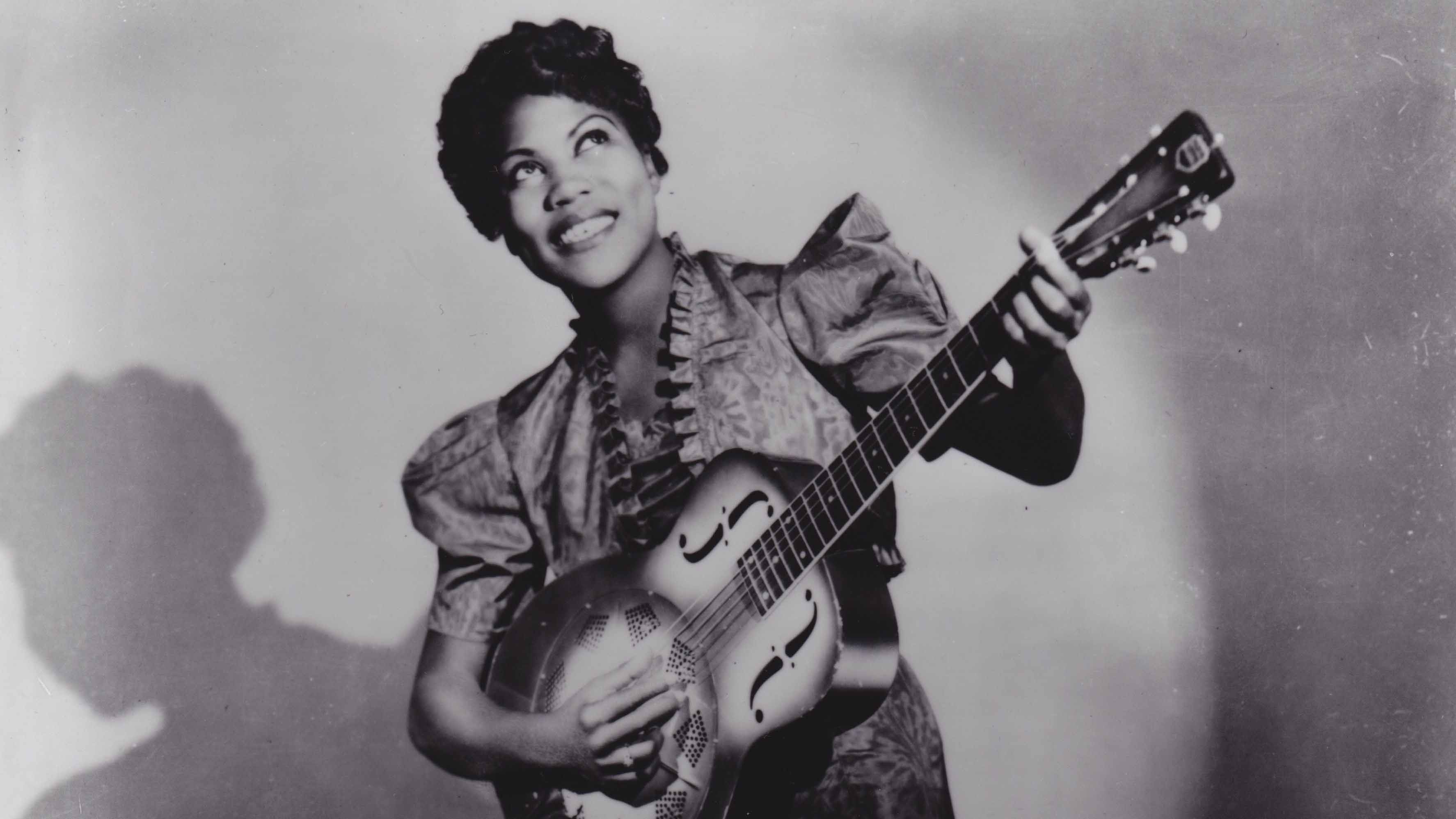Welcome to Making Music Herstory, where Jemima Skala will be highlighting and celebrating incredible female musical talent, past and present, that you might have missed. Not through any fault of your own, but our music press seems to favour white guys with acoustic guitars.
The first to grace our hall of fame, and tying in nicely with Black History Month, is Sister Rosetta Tharpe, the blues legend you’ve never heard of. She rose to fame in the 1930s and 40s, influencing everyone from Little Richard and Elvis to Johnny Cash.
Sister Rosetta combined the magic of blues, gospel and rock to create the most evocative and heartfelt songs of the scene. She trod the line between sacred and secular, performing gospel music in nightclubs accompanied by big bands. This allowed gospel music to take the pop limelight for the first time, particularly with her 1939 hit ‘This Train’. Although she was frowned upon by traditional gospel artists by bringing gospel to the mainstream, her music remained undeniably gospel, staying true to her spirituality.
Not only was her voice capable of navigating several octaves, but Sister Rosetta was a prophetic guitar player, incorporating her many skills into every one of her songs. She was playing and performing from the age of six in a travelling evangelical group, and had been dubbed as “a singing and guitar-playing miracle” from this tender age. Sister Rosetta didn’t let go of this early promise, and her proficiency can be seen in songs like ‘That’s All’ and ‘Up Above My Head’. In spite of her undeniable talent and fervour, Sister Rosetta offended a great many people simply by being a woman and playing guitar in nightclubs, places which were deemed immoral.
In case this wasn’t enough of a recommendation to make you run to Youtube to check her out, please do so now. Her live performances are captivating and incredible; she retains composure and grace with sweat running down her in rivers, shredding her guitar and belting out unimaginable notes.
And you’re not really a rock star unless there are questions hanging over your sexuality, are you? In 1946, Sister Rosetta saw Marie Knight performing in New York, and asked Knight to tour with her. For several years, they performed on the gospel circuit, which was enough time for several people in the gospel community to start a rumour that Knight and Tharpe were involved romantically. Both artists claimed that this was mere gossip, but of course they would, in a world where simply being black was enough to endanger your life, let alone a queer black woman.
Tracklist: ‘This Train’, ‘That’s All’, ‘Up Above My Head’, ‘Down By The Riverside’, ‘Didn’t It Rain’
Jemima Skala

